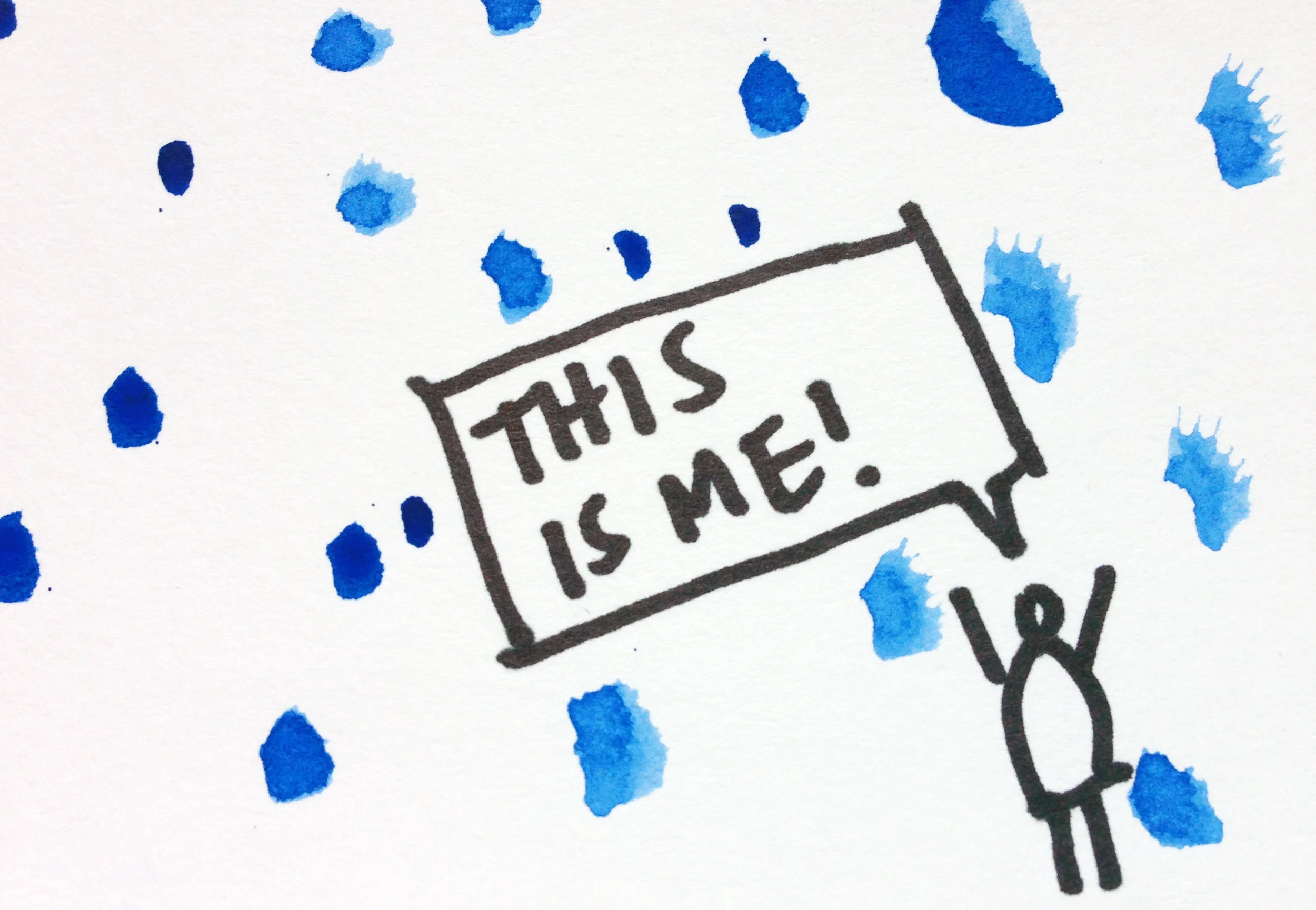When you are communicating about your work through writing, the goal is to find the voice that best expresses your ideas, a voice that sounds authentic. Usually this is your own voice – the voice that sounds like you. It’s so much easier to write in the way that you would naturally talk and it almost always sounds better to the reader. So, once you have found your voice in your writing, you would think that when it comes to communicating verbally, in person, things would be easy. But somehow confidence gets lost and the authentic voice that you’ve harnessed on the page disappears. So often this comes from the anxiety of dealing with your audience face to face (whether at a show, an interview or in a video for promotion) but often it is because we forget to use our natural speaking voices. Now, I can’t help you with the anxiety of public speaking, but I’ve found some great resources which can help you find and reclaim your authentic speaking voice, so that you can communicate clearly and confidently.
Our natural voices
As children we are not afraid to use our natural voices. But as we grow up we adjust to fit into society; to be polite, to be accepted, to seem friendly, to be non-threatening etc. For those of us who are British, and female, we have a tendency towards self-deprecation and not wanting to appear immodest, so we modify the way we speak. This modification happens in so many ways: we speak more quietly, we pick up words or phrases that are popular with our peers, we might speak in a higher pitch or we may stumble over words or mumble. These small adaptations become habits and we are unaware of them. But in myriad small ways we diminish ourselves when we dampen down our voices.
In a conversation with Mark McGuinness (in the 21st Century Creative Podcast) Kristin Linklater, the world-renowned voice teacher, explains that we are all born with a ‘free voice’ that is unique. This voice runs on emotion and free breath. As we grow up we learn that it is risky to say what we think and what we feel, so we become inhibited. This self-consciousness results in us holding tension within the body that constrains our voices. The key to allowing your natural voice to re-emerge is to relax and release the tension. Linklater recommends loud sighing as a good way of doing this. She also suggests going outside and calling out to the sky (HA!) to the horizon (HEY!) and to the ground (HO!). Part of me wonders if having a good old sing along to a favourite song might also do the trick here. Anything where you are making a loud noise with your voice in an uninhibited way.
Hearing ourselves
Reclaiming your voice also involves an honest self- assessment of the limits we have been placing on ourselves. This is incredibly hard to do for yourself, and may require you to ask (trusted) friends or family for help. Be open to this, no matter how awkward or embarrassing it may be for you.
-
Do you notice that you alter the way you speak? We often do this unconsciously, for example by slightly adapting our accents to sound more local. There’s nothing wrong with this – we are social beings after all – but noticing if/when we do it is what’s important here.
-
Do you change the tone of your voice? Do you find yourself using a higher pitch or sounding more child-like, especially if you want to gain sympathy or get your way? Again, no judgements here, just noticing.
-
Do you use certain words or phrases so regularly that they are almost catchphrases? Do you find yourself using slang or popular terms for things, things that other people may not know what they mean?
You may not be able to notice these things for yourself, so I recommend – if you can bear it!- recording yourself talking in an informal situation ( for example, to a friend) to see what you pick up on. Also, ask someone else for feedback – what do they notice about the way you speak? It will be hard to hear, but it will be worth it to learn more about your socially-constructed voice.
Something else to think about is:
-
What effect does public speaking have on your voice? Do you find talking with people daunting, or even terrifying? Do the nerves leave your voice wobbly and thin, or do you find yourself rushing to get through it? Some people find that their voice becomes monotonous, with little variation between words, and things start to run into each other. Noticing these things can also help when you are preparing for your next public speaking opportunity: what do you need to be mindful of?
Once you know more about your current voice habits, you can be more aware of them when it comes to talking about your creative practice in public. The funny thing is that when it comes to writing about your work it is good to sound like you, but when you are talking about your work you don’t want to be too distracting with things that maybe you aren’t aware of. You want to sound like you, but the natural you.
Next week: we’ll look practically at ways that you can prepare your authentic voice for public speaking situations.
Recommended resources:
21st Century Creative podcast: ‘Freeing the natural voice with Kristin Linklater’
Movie: ‘In a World’ starring, written & directed by Lake Bell. This is a great film that highlights the gender inequalities in the movie voice-over industry and asks women to question how they represent themselves to the world by the way they speak.
